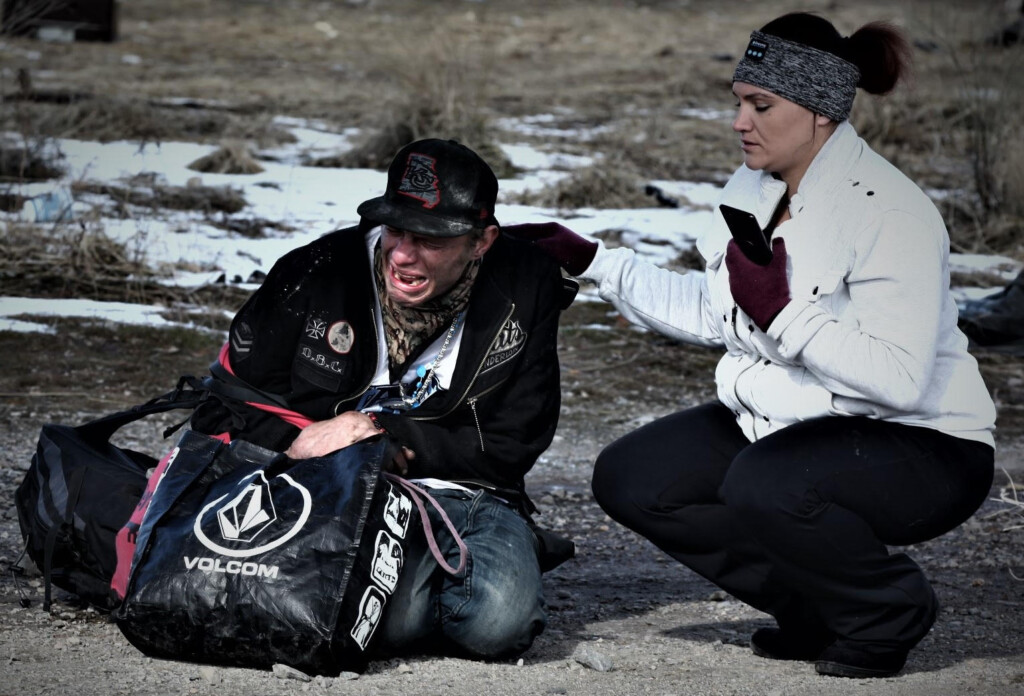
The following story was reported by The Utah Investigative Journalism Project in partnership with Utah Stories.
Suppose you make friends with a new member of your ward, softball team, bocce club, etc. One day your new pal offers to get you in on the ground floor of an incredible investment opportunity. It’s an exciting pitch even if the business idea doesn’t make all that much sense. After all, fleece jumpsuits for hairless cats doesn’t seem that lucrative to you, but then again, what do you know? You’re a dog person. Plus, you like your new friend and he’s very convincing.
What do you do?
Would you visit the state’s “Buyer Beware” list to see if your friend has run afoul of the Utah Division of Consumer Protection? Or would you perhaps visit the White-Collar Offender Registry site, utfraud.com, run by the Utah Attorney General’s Office, to see if he has been convicted of fraud in the last ten years? Or would you maybe just Google his name and see what comes up?
If you took the third option, you might find something or you might not. But one thing Google won’t take you to is the Division of Consumer Protection’s “Buyer Beware” list or the Attorney General’s White-Collar Offender Registry. That’s because the names of fraudsters on these very useful resources are not discoverable by Google — you have to find and login to the sites first and then search for offenders.
For two state agencies heavily invested in protecting Utahns against fraud, it’s a strange decision to shield valuable resources from users who have likely never heard of these sites but have probably heard of a company called Google before.
“The legislature tied our hands”
Utah’s White Collar Offender Registry was a signature initiative of Sean Reyes when he took the helm of the Attorney General’s Office. It was a much celebrated move after Reyes took over the office from John Swallow, who along with his predecessor Mark Shurtleff, were engulfed in public corruption investigations.
So the creation of a first-of-its-kind in the nation white-collar offender registry made headlines when it was rolled out in 2016, being covered by local outlets and national and international ones like The Atlantic and The Guardian.
But the media buzz has died down and the office doesn’t budget any special promotion or advertising of the site, says David Sonnenreich, deputy attorney general and director of the office’s antitrust section.
Sonnenreich says that the offenders on the registry are not discoverable by Google because of the way the law was written creating the registry. Before accessing the list, visitors agree to not use the information on the list to harass or stalk the offenders.
“[The disclaimer] has to be there before we identify the person by statute,” Sonnenreich says of the offenders. “They have to be behind the wall.”
He says if the names of offenders popped up on a Google search, that would violate the anti-stalking and harassment provisions of the website. “The legislature tied our hands in that respect,” he says.
While Sonnenreich agrees that “the wall” limits the exposure the site gets, he also adds that the registry provides other benefits. He says offenders who learn they are put on the registry are then motivated not to reoffend knowing that it will keep them on the registry.
To get on the registry, offenders have to be convicted on a certain fraud charge in state court. Such charges range from securities fraud (investment fraud) to money laundering, communications or mortgage fraud, among other possible charges. As of press time there were 346 offenders on the registry.

The Bigger Question
The Utah Division of Consumer Protection’s “Buyer Beware” list is another rich and useful database hidden from search engines. Users to the site can search by name to find people who have failed to respond to administrative subpoenas or consumer complaints, violated settlement agreements, or faced other actions by Consumer Protection.
A recent search of the site has listings for a lawn company alleged to have ripped a consumer off over landscape services that weren’t provided, a contractor who pocketed thousands and walked away from building a deck for a consumer, and the case of a business retreat company that took tens of thousands from multiple consumers with too-good-to-be-true promises of helping them become successful entrepreneurs.
When asked why the database is not discoverable by Google or other search engines, Ashley Beyer, a spokesperson for the division replied by email saying: “Because the Buyer Beware List is ever changing, the Department decided a database would be the most conducive to said changes and provide a user-friendly functionality.”
Wayne Klein is a former director of The Utah Division of Securities who now does consulting and expert witness work in securities cases. He points out that the “Buyer Beware” list is just the beginning. He notes that there are other databases under The Utah Department of Commerce similarly walled off from simple internet searches. The closed databases extend to disciplinary actions against doctors, nurses, contractors, and countless other licensees regulated by the Utah Division of Occupational and Professional Licensing. The same is true of actions taken against securities brokers.
“The division of securities spends a lot of effort going to senior citizen centers and holding educational seminars trying to educate people about fraud, so it’s not like they’re trying to hide the information,” Klein says.
Indeed, the Division of Securities April 2021 education fund report shows the division had $24,000 set aside for public investor education for the year, and had spent $3,971 on pamphlets to help educate industry professionals about regulations.
And yet, Klein says the department could boost its outreach significantly and inexpensively by making things more accessible to search engine crawlers. But he also realizes from experience that publishing information on offenders can rock the boat. As director, he published enforcement actions in a newsletter — a practice not continued by the director who took over when Klein resigned in 2008.
Klein’s resignation came on the heels of a highly critical legislative audit that accused him of violating the rights of alleged offenders. It was later revealed that one of the lawmakers who called for the audit did so on behalf of his friend Rick Koerber, a man later charged with multiple counts of securities fraud who is now serving a 14-year federal sentence.
For Klein, the bigger question involves more than just the “Buyer Beware” list and the White-Collar Offender registry.
“The information in all these databases is public if you go look,” Klein says, “So the question is, does Utah want to keep it’s public information less accessible and harder to find?”
White Collar Offender Registry: to find individuals convicted of fraud in the past ten years.
“Buyer Beware” List: to find individuals and companies potentially in trouble with Consumer Protection.
Division of Occupational and Professional Licensing: To see if a license holder has been disciplined.
To see if they have a license.
You knew this one already, but did you know companies will pay to have negative hits about their company buried in the page results? Google past the first few pages when looking for negative reviews or posts.
Subscribe to Utah Stories weekly newsletter and get our stories directly to your inbox





